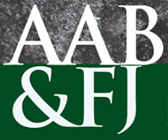Abstract
This research examines and analyzes the influence of competence and professional behavior on internal auditor performance achievements in the digital era, as well as the moderating role of time budget pressure. The research was carried out quantitatively using statistics to process data. The total research sample was 135 internal auditors in the public sector in the province of North Maluku, Indonesia. The sampling technique is a census or saturated sample because the number of qualified and certified internal auditors is relatively small. Empirical research found that competence and professional behavior significantly affect the performance achievement of internal auditors in the digital era. The moderation results show that time budget pressure can be well integrated with the effect of strengthening competence and professional behavior in achieving the performance of internal auditors in the public sector. That means that time budget pressure plays a moderating role. The research contribution is aimed at theoretical and practical development, namely at developing attribution theory in accounting or auditing research, and as a means of forming policies for the government or other public sector organizations in using audit mechanisms based on information technology or digitalization to facilitate services and increase organizational performance achievements in this era Digital today. The practical implication is that using e-audits in public sector organizations coupled with professional competence and behavior and integrated with time budget pressure will improve the performance of internal auditors organizationally and individually.
Keywords: internal auditor performance, competency, professional behavior, time budget pressure, e-audit
How to Cite:
Zamzam, I., Mahdi, S. A. & Sardju, F., (2024) “The Influence of Competency and Professional Behavior on Internal Auditor Performance in the Digital Era with Time Budget Pressure as a Moderator”, Australasian Accounting, Business and Finance Journal 18(2), 120-132. doi: https://doi.org/10.14453/aabfj.v18i2.08
Downloads:
Download PDF
Download PDF
862 Views
2829 Downloads

